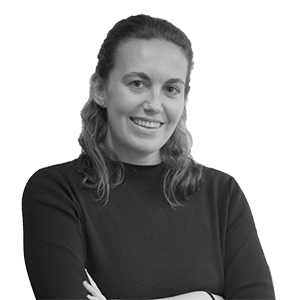Contagions put summer camps on alert
Sector regrets activity leaders were not vaccinated earlier and fears for economic survival


BarcelonaFor some days now Catalonia has become the territory in the state with the most coronavirus diagnoses among young people with an accumulated incidence that exceeds a thousand infections per 100,000 inhabitants in the last 14 days in the range of 20 to 29-year-olds. In fact, the average age of the newly infected is down to 26.4 years, according to BIOCOMSC data. This boom of contagions among the young puts the educational leisure sector on alert, not only because of the positive cases -some among activity leaders and educators- but also because of the numbers forced into self-isolation: children are left without camps or camps, families have to reorganise again and companies and organisations fear for their economic sustainability. The sector, however, asks for confidence: "It has been proven that education is a safe activity. We are very eager and we feel a lot of responsibility to do well. Last summer the protocols were much stricter and we managed. Why shouldn't it be the same this summer?", says Júlia Petit, president of the Catalan Boy Scouts.
The provisional official data offered by the Department of Social Rights states that so far 42 positives have been detected and there are 416 close contacts in self-isolation out of a total of 250,000 young people and 30,000 activity leaders involved in leisure activities. This might seem like small numbers, but not for involved businesses. "The situation is complicated," summarises the manager of the Catalan Association of Leisure, Education and Culture Companies, Pep Montes, which represents more than a hundred small and medium-sized businesses. Businesses believe summer camps, the same as schools, are a reflection of what goes on in the community: if at community level the delta variant advances at speed, the same will occur in leisure activities. "These contagions come from outside activities, because precaution has been relaxed. It is not that the activity leaders are irresponsible or that the contagions happen at summer camps - says Montes - but that there are contagions in the social environment and this has a repercussion in our sector"
Similarities and differences with the schools
In fact, more parallels can be established with the case of educational centres, because the protocols are very similar: the camps also have to be organised by coexistence groups that cannot have contact between them, at most there can be 24-30 participants in each group, over-6s must wear a mask, they have to keep their distance whenever possible and, when a positive is detected, a PCR is carried out on the whole group, which is put in quarantine.
Even so, there are substantial differences with what happened during the school year. On the one hand, the Department of Education's centralisation streamlined decision-making, meaning selective screening and isolation were almost immediate. During the summer, however, dozens of organisations, foundations, companies and associations organise leisure activities. As some families have explained to ARA, it is taking a little longer to carry out PCRs and to decide whether to put close contacts into isolation. The Directorate General of Youth has already asked all those responsible for these initiatives to communicate an updated record of positive cases and isolated cases.
There are more differences: lockdowns are an important economical setback for education companies. "Schools will not close, but leisure companies might because we do not have an protection", Montes alerts, after some families have asked for a refund after their children have had to be put in isolation and were left without a summer camp. In addition, to replace activity leaders at such short notice is very difficult. "Even the big companies are finding it difficult to replace educators. Some have between 8% and 15% of activity leaders in isolation," says the manager of Acellec.
This is why the sector is demanding action: financial compensation proportional to the activities that have had to be suspended, antigen tests before the start of activities and vaccination of activity leaders and educators. This is what the Canovelles Town Council has decided to do: after detecting a few positives in town's summer camp, all the activity leaders working in the town will receive the Janssen vaccine. In the end, this is a measure that comes late which the sector had requested months ago.
"If there has been a mismanagement it is not young people's fault," says the president of the Catalan Boy scouts, an organisation that will take 3,000 young people to camps this summer. After figures for contagions for the 15-29 age group shot up, Petit asked "not to criminalise" youths and recalled that while teaching staff and those responsible for day-to-day socio-educational activities (for example, school canteen workers) were vaccinated as an essential group, the educational leisure base was excluded from this campaign.
This has allowed, for example, for 80% of Fundesplai monitors to be already vaccinated with the full guideline. In fact, according to Pep Valls, a spokesman for an organisation that has 68,000 children enrolled throughout the summer, if their situation is "more or less under control" it is partly thanks to the fact that their educators and monitors are already vaccinated. Currently Fundesplai has registered 33 cases or close contacts among the over 6.000 children that take part in activities they organise, representing 0.5% of the total. During the worst moment of the second wave, at the end of October 2020, 95% of the pupils continued to attend classes in person.
